Searching for the soul of Jewish historical fiction
We live in the era of Jewish historical fiction. Hundreds of novels set at some point in the long Jewish past have been published in recent years, some based on biblical stories or Jewish folk tales, others built around major historical figures. The phenomenon shows no sign of slowing, with readers continuing to greedily devour historical fiction, and writers delighted to feed their addiction. Many trace the genesis of this hunger to The Red Tent, Anita Diamant’s massively popular 1997 novel that imagines the life of Dinah, the daughter of Jacob and Leah, who receives a mere mention in the Bible. Diamant’s creative imaginings of the life of Dinah led the way for other Jewish writers, among them Dara Horn. Two of Horn’s four novels have been historical fiction, including her latest work, A Guide for the Perplexed, which brings to life Solomon Schechter, the Cambridge professor who discovered the medieval archive hidden in the genizah of a Cairo synagogue. Here, Horn and Diamant, who has recently published The Boston Girl, discuss their writing lives and the art of historical fiction, and discover they have conflicting views about history and what it means to be a Jew. Their conversation is adapted from the 2014 Moment Magazine-Karma Foundation Short Fiction Contest Awards Ceremony & Literary Evening held at the Jewish Museum in New York City.
Horn: Did you always want to be a writer?
Diamant: I wanted to be a Broadway star. I wanted my name in lights. I wanted to play Anita in West Side Story. I performed in high school and college. I sang on stage. Even as a writer, I’ll perform and I want to please the audience. What about you?
Horn: For me, writing is not only a career choice—it’s more like a disease. It’s like you find out when you’re six that you have asthma. Fortunately, I’ve been able to make a living out of having asthma. It’s something I would have been doing anyway. I was writing in journals as a child and was publishing nonfiction as a teenager. The surprise for me came with writing fiction. I didn’t grow up writing short stories or making up stories. I only started doing that with my first novel. I hadn’t ever written a short story before. I had other aspirations. I wanted to be an astronomer or a physicist—those kinds of things. I had never met a writer before and I didn’t know that could be done.
Diamant: How did you start writing?
Horn: My family traveled a lot when I was growing up. My parents figured out very quickly that they needed to devise some sort of method for keeping us from beating up the flight attendants on these long flights. They told us we had to keep journals on these trips. I took this very seriously. The first thing I published was when I was 14. My family had done a trip to Spain on the 500th anniversary of the Jewish expulsion. The piece was actually called “The Jews in Spain Are Mainly on a Plane.”
Diamant: I started writing by accident. I moved to Boston in 1975. I wanted to be a poet. You cannot make a living as a poet. So I started writing grant proposals and then I fell into journalism. I wrote about women in sports. Nobody was writing about it. I started working for an alternative women’s newspaper called Equal Times, and then I got a job at The Boston Phoenix. That was graduate school for me. That was where I learned to write nonfiction. My first book was The New Jewish Wedding. Then came The Jewish Baby Book. The third was Living a Jewish Life. After 20 years, I was bored, which is why I thought I’d try writing a novel. I had never written fiction. I had never taken a fiction class.
Horn: I also started writing novels when I was bored. I had always thought I would be a journalist. After college, I won a scholarship to spend a year at Cambridge University in England. I was really lonely, bored, not interested in warm beer and crazed soccer hooligans. That was when I started my first novel. I have a question for you. It seems that your interests as a journalist or in nonfiction were very much centered on contemporary life. The New Jewish Wedding is not the old Jewish wedding. Obviously, in your fiction you have this imaginative power to go back into the past. Was that something that interested you prior to exploring fiction?
Diamant: I didn’t have a novel in my pocket. So I thought I would steal one from the greatest source of all. Actually, I realize now that I wrote fan fiction. I thought I would write the story of Rachel and Leah. I was intrigued by their relationship—I thought there had to be more to being sisters than finding who was going to get to sleep with Jacob. But I couldn’t figure out what was going to happen. I kept reading, and then there was this story of Dinah, which is a really juicy plot. She is a mystery because she doesn’t say anything, like most of the women in the Hebrew Bible. I gave her a voice. And you? You also went from writing in a contemporary setting to a historical one in your first novel.
Horn: My interest in the past started because I had been studying Hebrew and Yiddish literature in college. I was reading writers who were writing in Hebrew and in Yiddish at the turn of the last century—people like S.Y. Agnon, Yosef Haim Brenner, Haim Nahman Bialik. They always were using language that was tied to the Hebrew Bible, even if they were writing totally secular works. Hebrew wasn’t quite a revived language yet. They had to rely on these ancient resources, because there was no contemporary Hebrew-speaking life. That was really interesting to me. My favorite example of this is a story from Sholem Aleichem, which is about an insurance fire—when you set fire to your family business to collect the insurance. It happens a lot in Yiddish literature, don’t know why. It happens so often that there’s a Yiddish expression for an insurance fire, which is “lighting Shabbos candles in the middle of the week.” We can laugh about that, but there are so many of those kinds of references. That one is connected to a ritual, but there are many that are connected to biblical texts or rabbinic texts. It’s woven into the language.
The way that Yiddish writers were writing secular stories but using these historical religious sources was of interest to me. I felt really jealous. I felt like, well, in the United States we have a Jewish community that’s one of the largest communities in world history, but it is not a community that uses a Jewish language. This is a community that uses English. I wondered, “Is it possible to do this in English?”
I didn’t think it could be done until I started reading Cynthia Ozick’s book The Pagan Rabbi, a collection of short stories. It was amazing to read and think, “Wow! There’s somebody out there who’s amazingly talented, amazingly imaginative, writing contemporary stories, and who knows something about this tradition.” She knew the sources and was able to engage with them in a meaningful, contemporary way. That was very inspirational to me. I thought, “Wouldn’t it be interesting to turn English into a Jewish language?” What I meant by that is not to write stories with lots of words in italics—although some people do that very well—but to write stories where the references were drawn from those ancient texts. In a sense, I think that there’s a way in which you could see a lot of Jewish literature as being in some way a commentary on the Torah. I think that The Red Tent really fits into that idea. This is a midrash, really.
I was interested in finding a way to infuse contemporary stories with an awareness of the past. It seems to me in a lot of your creative work, you draw from the past, whether ancient or much more recent. I’m curious what you see as your obligations to history as an imaginative writer.
Diamant: My obligation to the past is to be as accurate as I can. All fiction is speculative, but the details have to be right, or to me that invalidates it completely. With The Red Tent, nobody knows what the recipe for goat stew was. I could make it up. It’s mixing milk and meat, by the way. Nobody’s complained about it because they weren’t Jews. Those are ingredients that might have been used by people in that time and that place. So there are no chickens in The Red Tent. When I read an anachronism in somebody else’s book, it bothers me. I feel they haven’t respected the past, nor respected the audience or the project of writing about the past.
While researching The Red Tent, I was looking at ancient Iraqi culture in 2,500 BCE. I did not look at the biblical text. I was interested in anthropology—what people wore and how people were buried. Then I extrapolated. I found this great book called Women’s Work: The First 20,000 Years, which is about spinning and weaving. Women in the book had something in their hands all the time, because they were always either weaving or spinning. All that fascinated me and went into the book. Since things changed much more slowly in the ancient world, I could even borrow from Roman times. There’s a frieze of a woman giving birth, surrounded by women and crouching with her arms around two other women. That’s probably what happened everywhere. So I put it in The Red Tent.
I go for the story. People have an assumption that I’m interested in this period of history, which is why I wrote The Red Tent. But it’s really not true. The story of Dinah was what drew me there. I was inspired to write The Last Days of Dogtown, which is a historical novel, because of names that I found in a pamphlet about this little town that was going out of business. Day After Night is set in Atlit [the detainee camp] in Palestine in 1945. I was told the story of this audacious 1945 rescue of Jewish refugees and there was my plot. It’s not the period, it’s the narrative and the characters.
I just finished reading your latest novel, A Guide for the Perplexed, which I highly recommend. There are layers and layers of history, at least three different time periods. One is contemporary, but it’s very complicated. Even the contemporary one is thinking about the recent past. The whole book is about the past. This is clearly something that you think about very deeply.
Horn: There’s a lot about American and Jewish culture that overlaps in very congenial ways. One aspect of American culture that I think is very contrary to Jewish culture is its attitude toward time. We have a mythology in America that it doesn’t matter who your parents are. It doesn’t matter who your grandparents are. It doesn’t matter who your great-grandparents are. What matters is what you do with the opportunities this country presents you. That’s what we call the American Dream.
In Jewish tradition, we have a founding mythology that is very much the opposite. One of the many founding mythologies in Judaism is that when God gave the Torah to the Israelites on Mount Sinai, it wasn’t just that generation of Israelites but all the descendants of that generation standing in Sinai to receive the Torah from God. That’s really the opposite of the American Dream, because that’s saying, it does matter who your parents are. It matters who your grandparents are. It matters who your great-great-great-grandparents are, and the most important thing in your life happened thousands of years ago, and there’s nothing you can do about it.
Ever since childhood, I’ve been very aware of living between these two worlds—living in a culture where all that mattered was what was new and living in a culture where all that mattered was what was old. I think it’s a world that everyone lives in now. In my most recent novel, which has multiple layers in it, the contemporary story is about a software developer who creates an app that records everything its users do. When I wrote it a year and a half ago, it was fiction. Now, it’s Google Glass, NSA. You can’t keep ahead of this. The historical story is about the genizah, which is this storage room in the synagogue in Cairo with 1,000 years’ worth of documents. This question of what we save from the past and what we have access to from the past is something that used to be a province of nerdy people like me, or someone like you who came across a story and had the motivation and the interest to research and follow it. I think now [with technology] it’s something that everybody has the ability to do. Whether people have the interest, I don’t know. That kind of research that you and I have done so often in our fiction is now very accessible and available to almost everyone. I think that it has an effect on people’s imaginations.
Diamant: I have to ask you about your Jewish background because everyone asks me about my Jewish background.
Horn: This is something that in your non-fiction books you’ve thought about out loud in a much more direct way than I have. I’m going to ask you to answer that first. I’m happy to answer it myself.
Diamant: My parents are survivors. They moved to the United States in the late 1940s.
Horn: From where?
Diamant: My mother grew up in Paris. My father grew up in Italy. They met in Switzerland. They moved to Italy again. My father couldn’t get a job there. They found a way to get to the United States. We did not have much in the way of Jewish observance. It was pretty tough to be talking about any kind of God when much of your family had disappeared. I grew up knowing I was Jewish. Everything had a Jewish flavor. We were Democrats because we were Jewish. We listened to classical music because we were Jewish. Somehow everything was connected. Everything was infused somehow with Jewish. I knew that we had lost something. I don’t remember ever learning the word “Holocaust.” It was like the word “chair.” It was something I grew up with.
Let’s fast forward. I fell in love with somebody who wasn’t Jewish. I realized I was probably going to have a family and what was I going to pass on to a child? My husband Jim converted to Judaism the week before we got married. His Intro to Judaism class was my Intro to Judaism class. When I asked a rabbi what I should read, he said, “You should write a book about Jewish weddings because they’re terrible.” They were written either by Orthodox rabbis or by etiquette mavens. That was my first book. Then I wrote The New Jew. Then, I had a daughter and there were really no books about ceremonies for daughters. It was a remedial Jewish education. Those books are like service-feature articles that are blown up into books.
This Sinai story you just told, which I learned as an adult, did you grow up with it?
Horn: Yes, but probably not from what you would assume. I think that a lot of people who read my books, which draw a lot on Jewish religious sources, assume that I grew up Orthodox or that I’m Orthodox. No. Sorry. But I think something like your rediscovery experience happened in my family a generation earlier at a greater remove. I’m a fourth-generation American. I did not grow up hearing people speaking Yiddish or talking about an old country. The old country was Newark and now we live in Short Hills. My mother’s family was assimilated enough that they had a Christmas tree. They sent her to Hebrew school. She met a teacher in the Hebrew school whom she fell in love with. This person became like a second parent to her and a grandparent to me in a lot of ways.
She followed him home from class when she was eight. She did her doctorate with him in Jewish studies at NYU. She really embraced this—to the total befuddlement of her parents—and really committed herself to raising me and my three siblings in a house that was very immersed in Jewish life
I always went to public schools but I went to [Jewish] afternoon programs. I realized I wasn’t going to learn Hebrew one day a week or something like that, and so I signed myself up for an ulpan class at the local JCC, not understanding that the only people who take adult education classes are retired. My nickname in this class was tinoket which is the Hebrew word for “baby,” because everybody [else] in the class was retired, and I was 15.
I think the discovery you went through and perhaps my mother went through is actually very common. This is something that I’ve noticed now that I study Hebrew and Yiddish literature. I was reading a Yiddish novel recently by the Yiddish poet, Yankev Glatshteyn. It’s about his trip back to Poland in 1934. He’s at this health resort, and he’s meeting Jews from all different walks of life. There’s this guy who’s a baal teshuva, who’s become religious having grown up secular. He says, “I have all these reasons for why I did this but I honestly can’t explain it. The only way I can explain it is by saying that there must be an ancestor sitting inside me who’s summoning me back.” I think there’s that strange phenomenon that you see throughout Jewish history.
Diamant: I have to say this. That bothers me. There’s a racial aspect to this and also the standing in Sinai thing. This “ancestor inside of me” business.
Horn: Why does it have to be biological?
Diamant: Having married somebody who wasn’t born Jewish, having opened a mikvah in Boston in order to be truly open to people from all over the planet, from all different backgrounds, who feel a connection to this tradition, the notion of “we were all at Sinai”—you can say that my soul was there somehow, but it always creeps me out just a little bit.
Horn: I appreciate what you’re saying, but here’s how I would respond. The man who made my family Jewish, so to speak, this teacher that my mother had—he’s not my grandfather, but that doesn’t matter. It’s not like you’re going to do a DNA test or something like that.
Diamant: That’s a very good answer. There are all these articles about genetics saying that we’re all somehow related to each other.
Horn: That doesn’t appeal to me at all. I see it as a spiritual legacy. It’s not necessarily from parents or grandparents. I have often found that people who choose to become Jewish feel something like this also. I have a very dear friend who became Jewish in college. I remember asking her why she made this choice. She had all these various reasons, but what she said to me was “I’ve always felt that I had a Jewish neshama,” a Jewish soul.





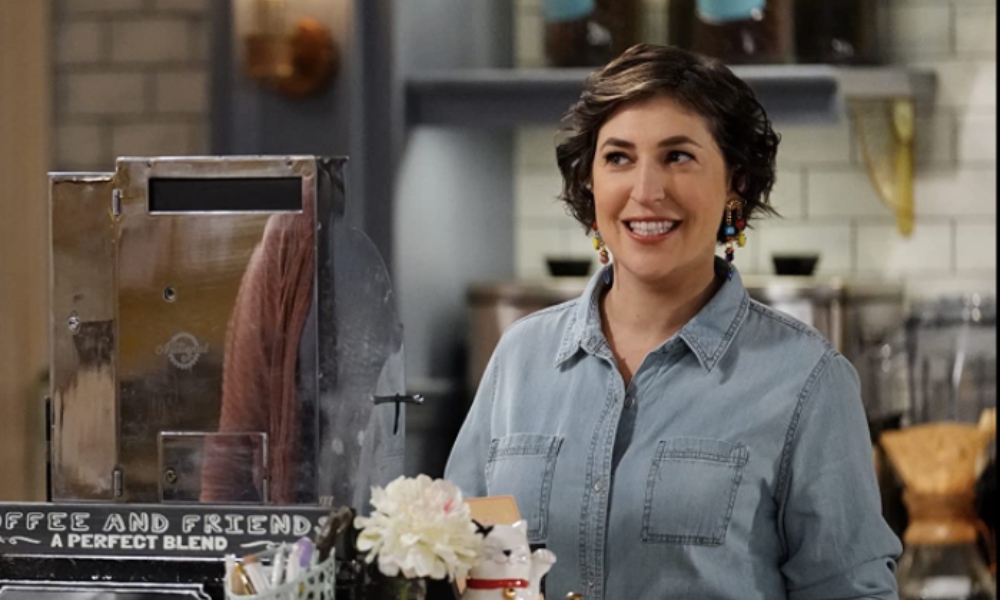
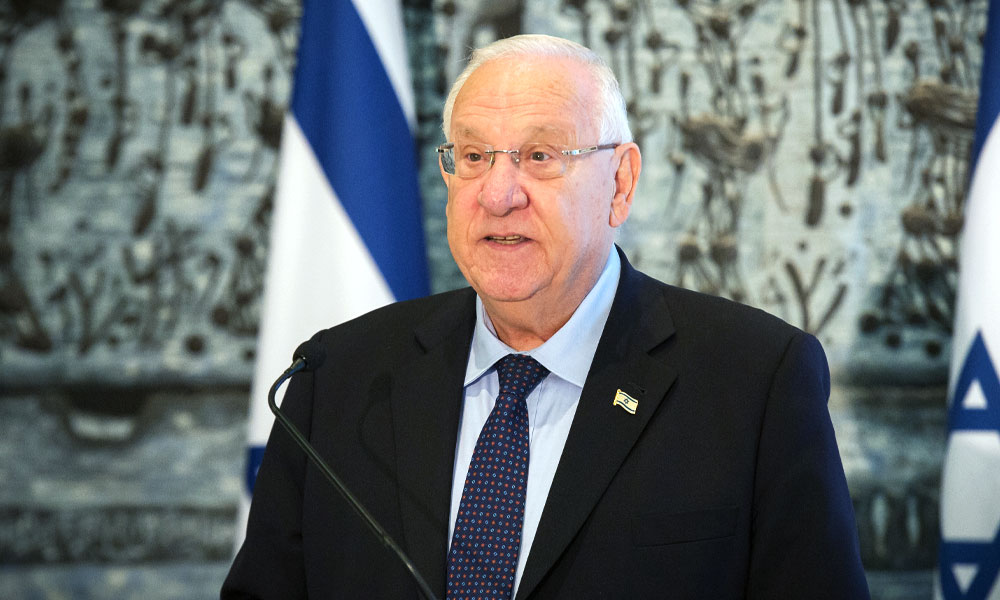

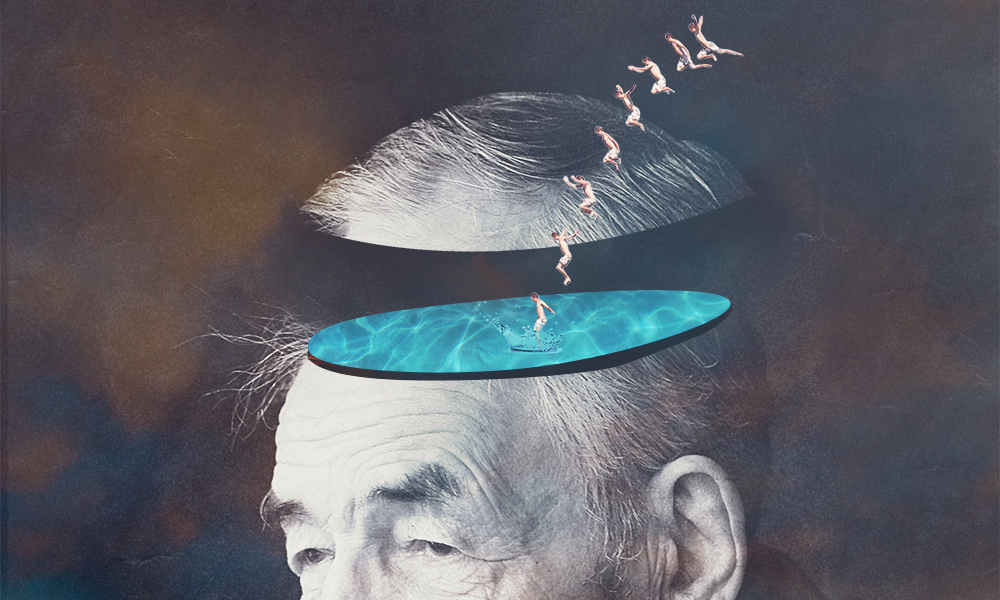
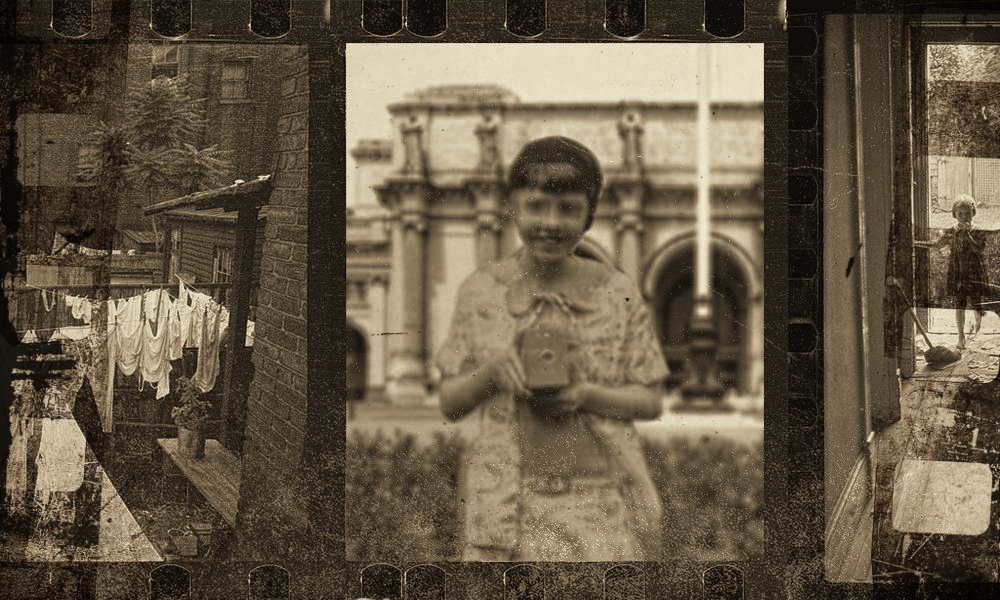
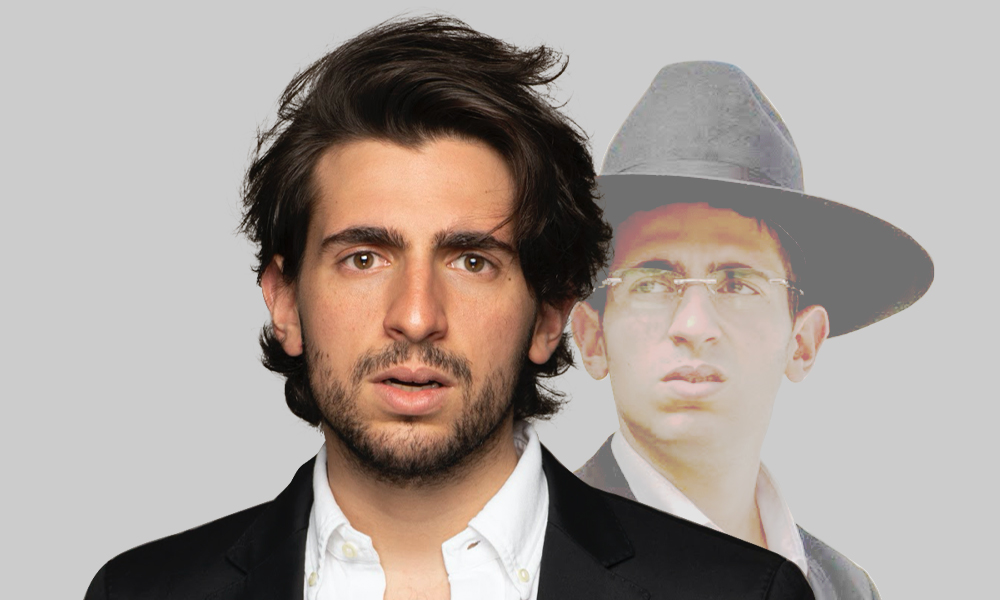

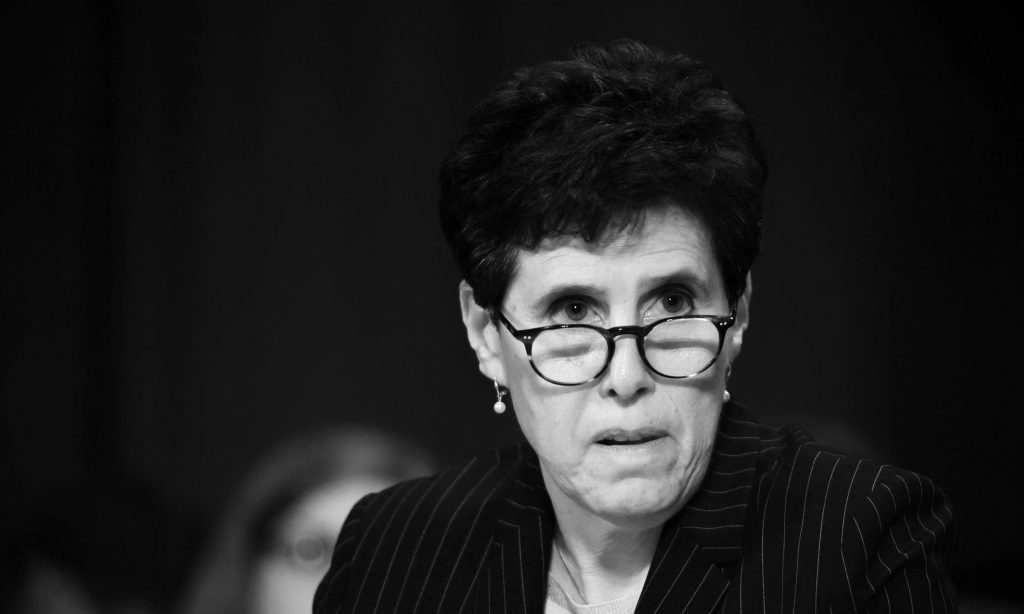

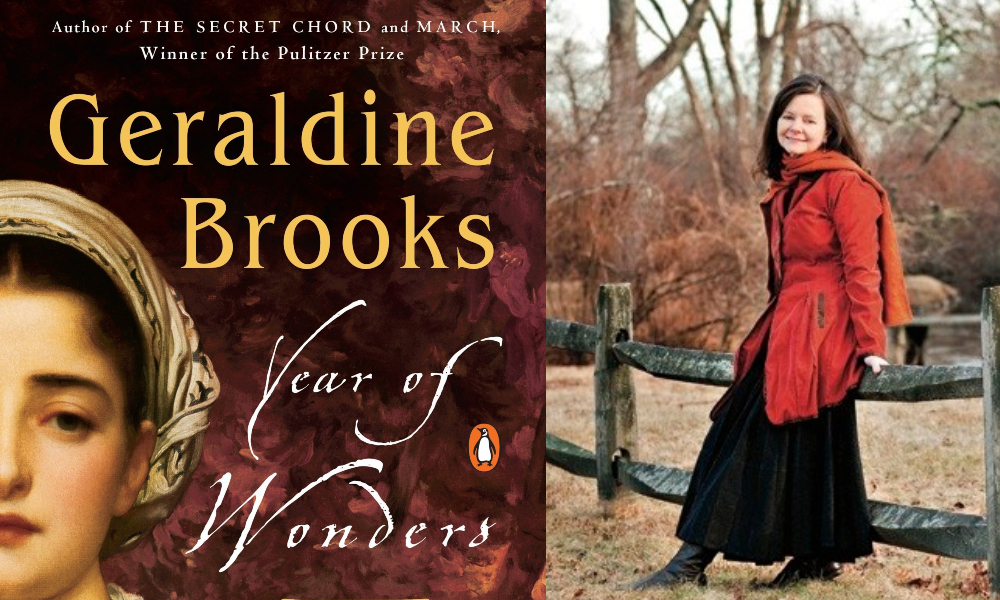
Wonderful exchange — refreshingly candid — was this videotaped?
I assume the wonderful teacher was Dr. Natan Winter. Why not mention him by name. He was also a mentor to me and my husband when we taught Hebrew school for him in South Orange. A true Mentsch and a fine educator. I am a fan of both Horn and Diamant and have read most of their books. I was one of the first to write a short story or midrash about Dinah (as a rape victim) in 1985. It appears in my collected works.
Loved this interview. Sorry to have missed Dara Horn’s visit to Detroit while I was at the Novelists Inc conference in Florida. 🙁 I totally understand the feeling of always having had a Jewish neshama, and the urge to write Jewish stories. Brava, ladies.
Hi Karen, Dara Horn is hosting a video chat event on Thursday, Jan. 25 to speak with her readers and sign autographs. More details can be found here: https://www.chatalyze.com/leadpage/314.
Happy reading,
Jordan